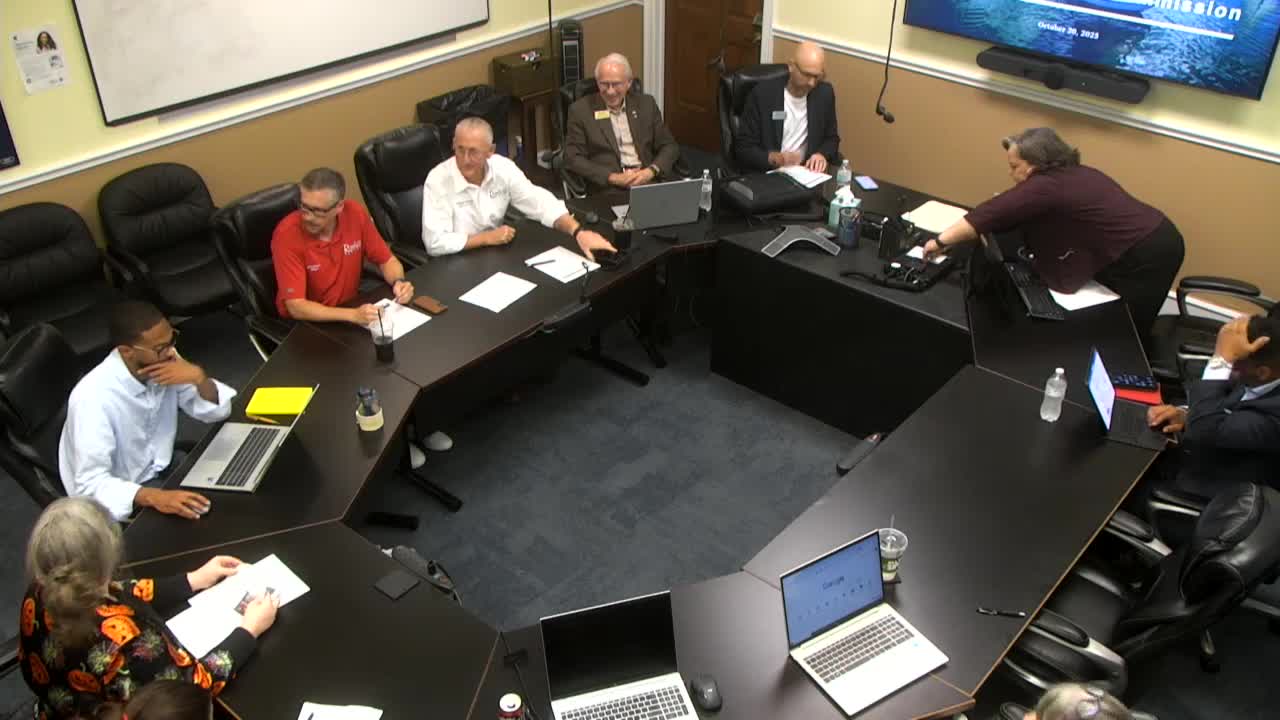Rowlett arts commission outlines grants, events and plans for public‑art policy; launches SHINE inclusion initiative
Get AI-powered insights, summaries, and transcripts
Subscribe
Summary
At a Rowlett City Council work session Oct. 20, the Arts and Humanities Commission presented its annual report, detailing grant programs, contests and events, a new SHINE initiative for people with special needs, and plans to draft a public‑art policy as officials weigh spending from the city’s public‑art fund.
The Rowlett Arts and Humanities Commission presented its annual update at a City Council work session on Monday, Oct. 20, 2025, reviewing grants and community events, and outlining plans for a public‑art policy and a new inclusion program called SHINE.
The presentation, delivered by Arts and Humanities Commission Chair Katie Crenshaw with input from Laura Turner, director of library services, described continuing cultural and arts‑education grants aimed at projects that “promote Rowlett,” several community contests that drew wide participation, and a growth in signature events such as Rowlett Sings and Trombone Thanksgiving. Crenshaw also said the commission is developing SHINE, “supporting communities, integration, neurodiversity, and expression,” to expand arts opportunities for people with special needs.
Why it matters: the commission oversees a small city public‑art budget and programs that city leaders say can support downtown revitalization, bring tourism and broaden community access to the arts. Council members asked the commission to accelerate completion of a formal public‑art policy so staff and the council can evaluate future projects and budgets.
Crenshaw described the commission’s existing grant programs, including a cultural grant that requires applicants to show how funding will benefit Rowlett residents and an arts‑and‑education grant targeted at Garland‑Rowlett ISD (GISD) schools. The commission also runs citywide contests and exhibitions: the writing contest drew 137 entries last year, and the young‑artists exhibit and photography contest continue to attract school and community participation. “They must demonstrate how the funds will promote Rowlett,” Crenshaw said of grant applicants.
The commission highlighted events the city has supported or hosted. Rowlett Sings is a public performance the commission helped fund; Trombone Thanksgiving, a Thanksgiving‑season music event unique to Rowlett, has grown and now requires additional budget consideration for music copyright costs and printed music. An ornament‑decorating activity typically run with the 12 Days of Christmas was shown to be low‑cost and popular (last year’s participation figures cited by the commission: 20 adults and 29 children).
On public art, commissioners said no new permanent public‑art pieces were installed in fiscal 2025 and that the group is refining where future pieces should be sited—particularly with downtown revitalization under discussion. The commission said the city has historically allocated roughly $50,000 a year into a dedicated public‑art fund and reported the fund balance is about $127,000. Commissioners noted the relatively high costs of permanent pieces: the 9/11 memorial cost “in the neighborhood of $40,000,” and refurbishing the mural along State Highway 66 has been estimated at nearly $200,000, figures the commission used to explain why it wants clearer public direction before committing large sums.
To reduce long‑term maintenance costs the commission said it is also considering temporary installations and lower‑maintenance options such as student‑designed art on traffic boxes and short‑term community projects. Commissioners said they are drafting a public‑art policy that would set rules for placing, commissioning and maintaining public art and for displaying artwork in city buildings such as the library and annex.
Crenshaw and Turner described a new initiative, SHINE (Supporting Communities, Integration, Neurodiversity and Expression), which the commission developed after being approached by groups serving children and adults with special needs. The commission said SHINE will create arts programming tailored to that community and that an ornament‑making activity could be incorporated into SHINE events this December.
Council members who questioned the commission urged a faster timeline for the public‑art policy’s completion. “If there’s a way you guys can escalate that timeline, I think it would really help,” a councilmember said, noting that a policy would clarify how public‑art projects align with downtown plans and the city’s budget process. The commission said it initially targeted the start of fiscal 2027 for a final policy but agreed to try to expedite that schedule and present the policy for consideration at the next budget‑planning cycle if possible.
No formal council action or votes took place during the work session; the presentation was informational and the council moved on to consent‑agenda discussion after the update.
Looking ahead, the commission said it will continue to solicit community input on public‑art priorities, finalize its public‑art policy and expand SHINE programming. The commission also invited council and staff cooperation to align art projects with downtown revitalization efforts and to ensure maintenance obligations and lifecycle costs are included in future planning.
